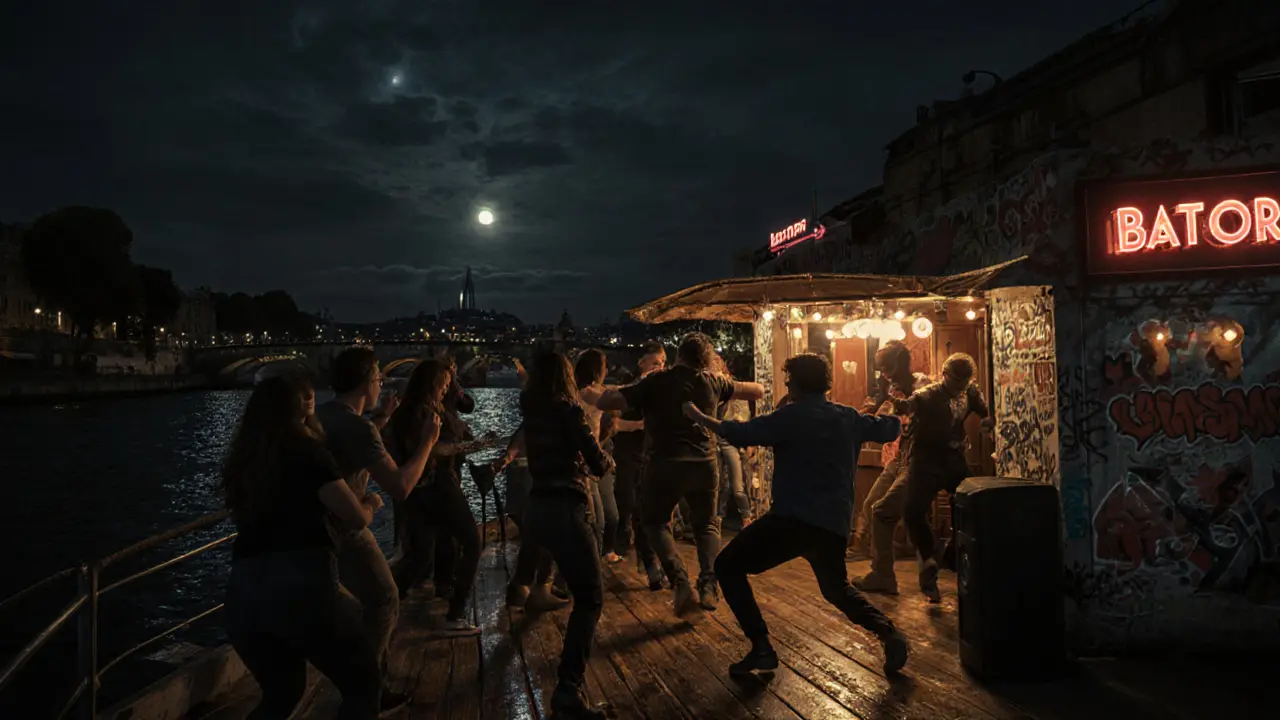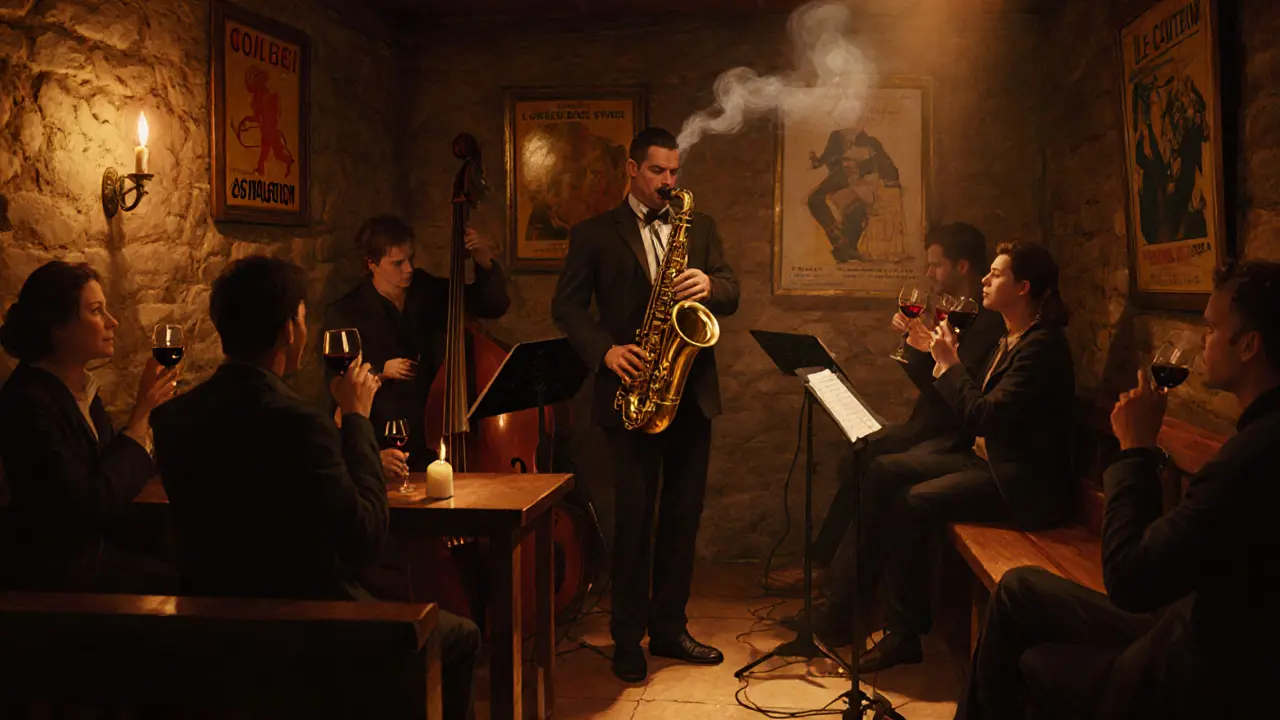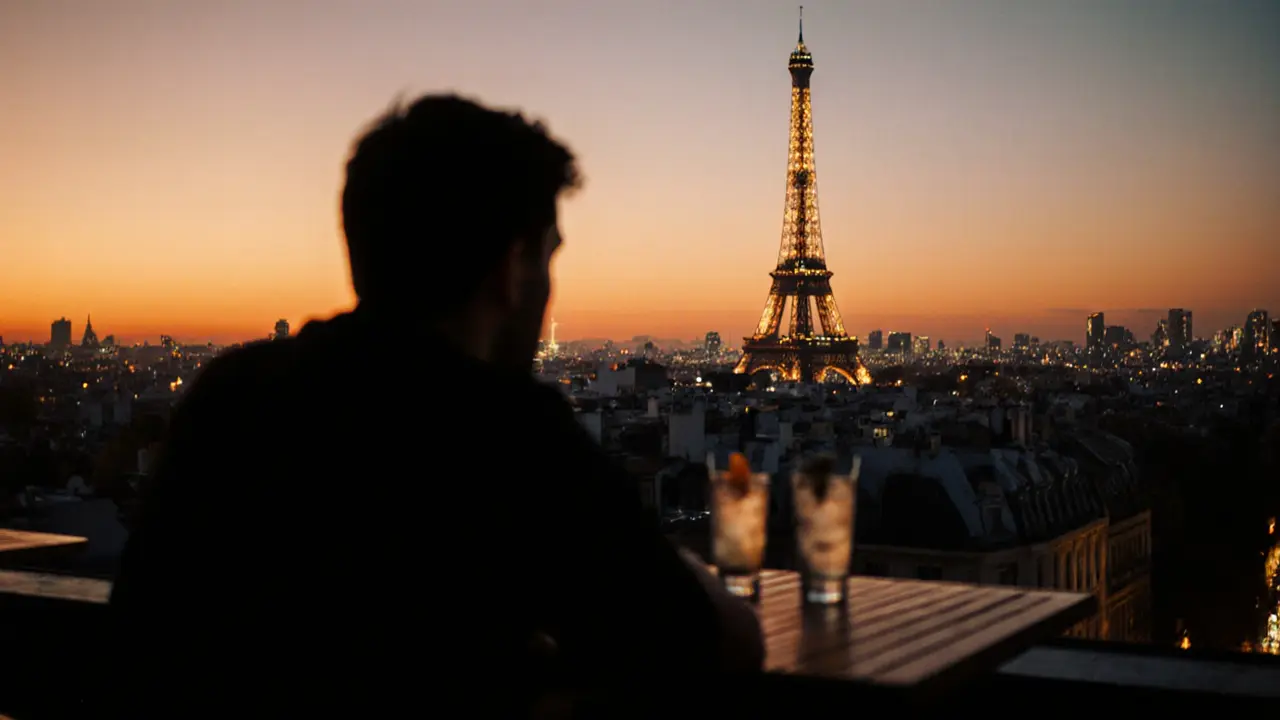
Paris doesn’t sleep - it just changes outfits. By 10 p.m., the city’s cafés empty out, the streetlights glow brighter, and the real Paris wakes up. This isn’t the Paris of postcards and croissants. This is the Paris of bass-heavy basslines, smoky jazz cellars, rooftop cocktails with Eiffel Tower views, and underground dance floors where the crowd moves like one body. If you’re looking for the real night out in Paris, you need to know where to go, when to show up, and what to expect - because the wrong club at the wrong time can mean standing outside for an hour while the music inside keeps getting better.
Where the Locals Go: The Real Paris Nightlife Scene
Most tourists head straight to Le Baron or L’Avenue. Those places are fine if you want to see influencers posing with champagne flutes and pay €20 for a soda. But if you want to feel like you’ve slipped into the heartbeat of Paris after dark, you need to go where the locals do - and that’s not always the most famous name on the list.
Start with Le Batofar. It’s a converted barge docked on the Seine near the Gare de Bercy. No velvet ropes. No dress codes that require a PhD in fashion. Just a raw industrial space with a massive sound system, a crowd that’s there for the music, not the photo op, and DJs spinning everything from techno to French house. It opens at 11 p.m. and doesn’t clear out until 6 a.m. You’ll find students, artists, and expats all dancing shoulder-to-shoulder. The vibe? Pure, unfiltered Parisian night.
For something quieter but just as authentic, head to Le Caveau de la Huchette in the Latin Quarter. This is a jazz cellar that’s been open since 1947. No neon signs. No menu with prices in euros and dollar symbols. Just dim lights, wooden benches, and a five-piece band playing live swing and bebop. You don’t need to know the difference between a Dorian mode and a Mixolydian - you just need to show up, order a glass of red wine, and let the music pull you in. It’s not a club. It’s a time machine.
Top Clubs: Where the Music Hits Harder
Paris has more than 100 clubs that stay open past 3 a.m. But only a handful deliver the kind of experience that makes you remember the night for years. Here are the ones that matter right now in 2025.
- Concrete - Located in the 13th arrondissement, this is the most respected techno club in the city. It’s not flashy. No VIP section. No bottle service. Just a warehouse space with a Funktion-One sound system, a 200-person capacity, and DJs like Amelie Lens and Charlotte de Witte booked monthly. Entry is €15 before midnight. After that, it’s €20. Worth every euro.
- La Machine du Moulin Rouge - Not the cabaret. This is the new underground club underneath the famous theater. It opened in 2023 and quickly became the place for experimental electronic music. Think glitch, industrial, and noise techno. The walls vibrate. The floor shakes. You’ll leave with your ears ringing - and your body still moving.
- Club 12 - A hidden gem in the 11th arrondissement. It’s run by a collective of local producers. No online booking. No Instagram page. You find it by word of mouth. The door is unmarked. You show your ID, pay €10 at the door, and walk into a basement where the music is loud enough to feel in your chest. The crowd? Mostly French, mostly under 30, mostly here for the music and nothing else.
Pro tip: Don’t go to clubs before midnight. Parisians don’t start their nights until after 11 p.m. If you show up at 10:30, you’ll be the only one there. And you’ll pay full price for a drink while the DJ warms up.
Bars That Don’t Just Serve Drinks - They Create Moments
Parisian bars aren’t about the cocktails. They’re about the atmosphere. The right bar turns a drink into a memory.
- Le Comptoir Général - A former colonial warehouse turned surreal lounge. Think African art, vintage typewriters, and a bar made from reclaimed wood. They serve rum cocktails with names like "Sahara Sunset" and "Zanzibar Midnight." The music? Afrobeat mixed with 70s French pop. It’s not a bar. It’s an experience. Open until 2 a.m.
- Bar à Vin - A tiny wine bar in Le Marais with 12 seats and 80 bottles of natural wine. No menu. The bartender asks what you like - "fruity? earthy? spicy?" - and pours you something you’ve never heard of. It’s €8 a glass. You’ll leave with a new favorite wine and a conversation you won’t forget.
- Le Perchoir - Rooftop bars are everywhere in Paris. But this one? It’s the best. Perched on the 7th floor of a building in the 11th, it has 360-degree views of the city skyline. The cocktails are simple: gin and tonic, old fashioned, or a house-made lavender spritz. The real draw? The sunset. Show up at 8:30 p.m. and watch the Eiffel Tower light up as the city turns gold.

Shows and Live Performances: More Than Just Music
Paris isn’t just about dancing. It’s about witnessing art come alive after dark.
- Le Lido - The cabaret show you’ve seen in movies. But it’s better in person. The dancers are world-class. The costumes are hand-beaded. The music? Live orchestra. The show runs from 9:30 p.m. to 11 p.m. Tickets start at €89. It’s not cheap, but it’s the only place in Paris where you can see a woman in a 15-foot feather headdress dance on a moving platform while singing Edith Piaf.
- Théâtre de la Ville - If you want something avant-garde, this is your spot. They host experimental theater, contemporary dance, and spoken word performances that often run past midnight. No subtitles. No programs. Just raw emotion. Shows start at 10 p.m. and tickets are €15-25. You’ll leave thinking differently about art.
- La Cigale - A legendary music hall that’s hosted everyone from Edith Piaf to Radiohead. Today, it’s a hotspot for indie rock, French pop, and electronic acts. The sound system is flawless. The crowd is loud, passionate, and knows every lyric. Shows start at 9 p.m. and end around midnight. No VIP section. Just people who came to hear music, not to be seen.
When to Go and What to Wear
Paris nightlife isn’t a free-for-all. There are rules - but they’re not written down. They’re felt.
Best nights: Thursday, Friday, and Saturday. Wednesday is for locals who want to test new clubs. Sunday is quiet. Monday is for cleaning up.
What to wear: No sneakers. No hoodies. No baseball caps. Parisians dress with intention. You don’t need a suit, but you do need clean lines. Dark jeans, a button-up shirt, a leather jacket. Women wear dresses or tailored pants. It’s not about being rich - it’s about being put together. The bouncers notice. And they let you in.
How to get around: Take the metro. It runs until 1:15 a.m. on weekdays and 2:15 a.m. on weekends. After that, you’ll need a taxi. Uber works, but it’s expensive. Vélib’ bikes are gone after 11 p.m. And walking? Only if you know the neighborhood. Stick to the 1st, 3rd, 4th, 11th, and 13th arrondissements after dark.

What to Avoid
There are traps. And they’re everywhere.
- Don’t go to clubs that charge €30 to get in - Unless it’s a special event (like a New Year’s party), that’s a red flag. Real clubs in Paris charge €10-20. If it’s more, you’re paying for the name, not the music.
- Avoid tourist traps in Montmartre - The jazz clubs there are for people who want to hear "La Vie en Rose" played on a kazoo. Skip them.
- Don’t expect English everywhere - Most bouncers, bartenders, and DJs speak French. Learn three phrases: "Où est la salle de bain?" (Where’s the bathroom?), "Un verre d’eau, s’il vous plaît" (A glass of water, please), and "Merci" (Thank you). It goes a long way.
- Don’t bring your whole group - Clubs cap capacity. If you show up with 10 people, you’ll get turned away. Go in pairs or threes. It’s more intimate. And more fun.
Final Tips for the Night
Paris doesn’t reward the rushed. It rewards the curious.
- Carry cash. Many clubs don’t take cards after midnight.
- Keep your ID on you at all times. You’ll need it every time you enter.
- Don’t drink too fast. The night is long. Sip. Listen. Watch. The best moments come when you’re not trying to force them.
- If you’re lost, ask a local. Parisians are polite. They’ll point you in the right direction - even if they don’t speak your language.
- End your night with a coffee at La Caféothèque in the 6th. It opens at 6 a.m. and serves the best espresso in the city. No one’s there. Just you, the steam rising from your cup, and the quiet hum of a city waking up.
What’s the best time to start a night out in Paris?
Most Parisians don’t start their nights until after 11 p.m. Clubs don’t fill up until midnight. Bars get busy around 1 a.m. If you show up at 9 or 10 p.m., you’ll be alone. Wait until the city wakes up - that’s when the real energy begins.
Are Paris clubs expensive?
Entry fees range from €10 to €25, depending on the club and the night. Drinks cost €10-15. That’s more than in Berlin or Prague, but less than London or New York. The real value is in the experience - the music, the crowd, the vibe. You’re paying for atmosphere, not just alcohol.
Can I go to clubs without speaking French?
Yes. Many clubs in central areas like the 11th and 13th have international crowds. But knowing basic phrases helps. Bouncers appreciate it. Bartenders give you better service. And you’ll avoid awkward moments when you can’t find the bathroom or ask for water. A simple "Merci" or "Où est la sortie?" goes a long way.
Is Paris nightlife safe at night?
Generally, yes. The main nightlife areas - Le Marais, Oberkampf, and the 13th - are well-lit and patrolled. Avoid walking alone in unfamiliar neighborhoods after 2 a.m. Stick to the metro. Don’t flash cash or expensive phones. Most incidents happen when tourists act like they’re in a movie. Be aware. Stay calm. You’ll be fine.
What’s the difference between a bar and a cabaret in Paris?
A bar is where you drink, talk, and listen to music. A cabaret is a full theatrical show - think dancers, costumes, live orchestra, and scripted performances. Le Lido and Moulin Rouge are cabarets. Le Comptoir Général is a bar. One is entertainment. The other is relaxation. Know which one you want before you go.
If you’re looking for the real Paris after dark - the one that doesn’t sell postcards - this is where you’ll find it. Not in the tourist zones. Not in the Instagram feeds. But in the basement clubs, the jazz cellars, the rooftop terraces, and the quiet corners where the music plays just a little louder than the city outside.

Write a comment